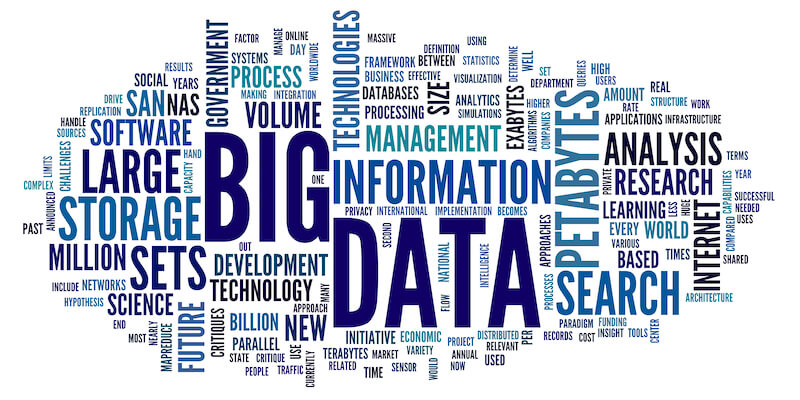American Express Global Business Travel (GBT) is the world’s largest business travel provider with 16,000 travel professionals in more than 140 countries, managing over $19 billion a year in corporate travel spending and serving 37 out of the 100 largest travel spenders in the US. American Express GBT wanted to protect and increase market share by differentiating its core services.
Recent TRG blog posts
How American Express Differentiates Core Services with Infor Birst BI
Posted by Rick Yvanovich on Wed, Jul 6, 2022
Blog Topics: Cloud Computing, Analytics
What is Data Management Software?
Posted by Rick Yvanovich on Tue, Jul 5, 2022
Enterprises are creating and storing an ever-growing amount of data, which makes data management challenging. Database management software enables businesses to increase data accessibility and streamlines the document management process.
Blog Topics: Technology trends, Analytics
Data Management vs Information Management - What You Need to Know
Posted by Rick Yvanovich on Tue, Feb 22, 2022
In today’s digital economy, companies have access to more data than ever before. This information serves as a foundation for making key business decisions. Companies must invest in data management systems that increase visibility, reliability, and security to ensure that employees have the necessary data for decision-making.
Blog Topics: Business Intelligence, Analytics
What Is Data Cleansing and Why Does It Matter?
Posted by Rick Yvanovich on Thu, Jan 6, 2022
In today's business world data has become the most important asset for practically every organisation. If your customer database is left idle for a long time, the information becomes outdated and redundant. Your company needs accurate, relevant data in order to develop successful initiatives. And here is why a data cleaning tool may help you.
Blog Topics: Analytics
Don’t Let Your Data Lake Become a Data Swamp – Here’s What You Can Do
Posted by Rick Yvanovich on Wed, Sep 15, 2021
Versatility, scalability, cost-savings, and deep analytics capability – those benefits have made data lakes an indispensable component of a modern enterprise’s technology infrastructure. But just like everything else in life, there are trade-offs that, without proper precautions, can turn your data lake into a ‘data swamp’ – a digital mess of unmanageable and unusable raw data.
Blog Topics: Technology trends, Business Intelligence, Analytics
When Does Your Business Need a Data Management Platform?
Posted by Rick Yvanovich on Tue, Jul 27, 2021
Data Management is extremely critical. As your business grows, it is only natural that the amount of data you generate daily, such as customer data, employee data, internal process data, product data, etc. also increases.
Blog Topics: Technology trends, Business Intelligence, Analytics
6 Data Cleansing Best Practices for a Healthier Database
Posted by Thanh Nguyen on Fri, Apr 9, 2021
Data cleansing is one of the most important steps in the data preparation process. As companies are increasingly dependent on data to make crucial decisions, inferior data can leads to inefficiency, missed opportunities, or even financial losses. Thus, ensuring a “clean” database is one of the biggest challenge in today's organisations.
Blog Topics: Business Intelligence, Analytics
How Data Analytics is Changing Hotel Revenue Management
Posted by Rick Yvanovich on Mon, Jan 4, 2021
The importance of revenue optimisation or revenue management in the hotel industry cannot be overstated due to its critical importance to the Hotel's bottom line. Revenue optimisation is being able to sell the right room to the right guest, at the right price and at the right time. It requires plenty of actionable information on time, which is so often unattainable.
Blog Topics: Hospitality solutions, Business Intelligence, Analytics
5 Use Cases of Data Lakes that You Probably Did Not Know
Posted by Rick Yvanovich on Thu, Oct 22, 2020
A data lake, in essence, is a repository that can store an infinite amount of both structured and unstructured data for later use. In a previous article, we have briefly explained a few noticeable differences between data lakes and data warehouses. Each type of data repository serves a unique purpose. Therefore, instead of replacing one with another, they can be used supplementarily.
Blog Topics: Technology trends, Business Intelligence, Analytics
What to Look For in Workflow Automation Software
Posted by Rick Yvanovich on Fri, Oct 4, 2019
In previous blog posts, we have discussed why workflow automation software is a worthwhile investment as it frees up human resources, increases efficiency, reduces errors in both information gathering and overall processes, and reduces your overall costs.
Blog Topics: Enterprise Performance Management (EPM), Financial Accounting Management Software, Business Intelligence, Analytics
 English
English  Vietnamese
Vietnamese 










